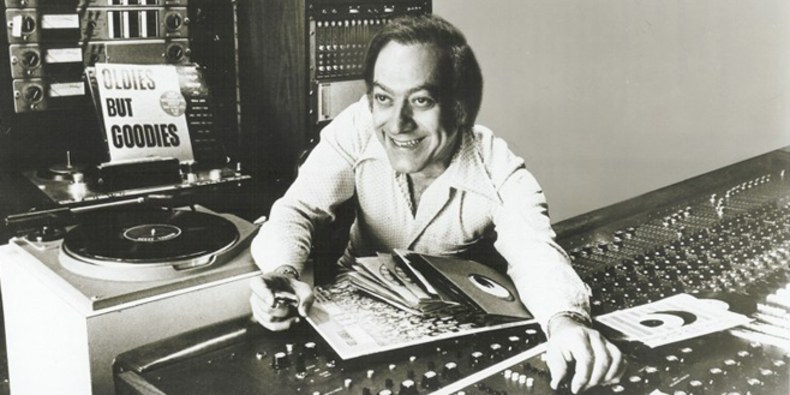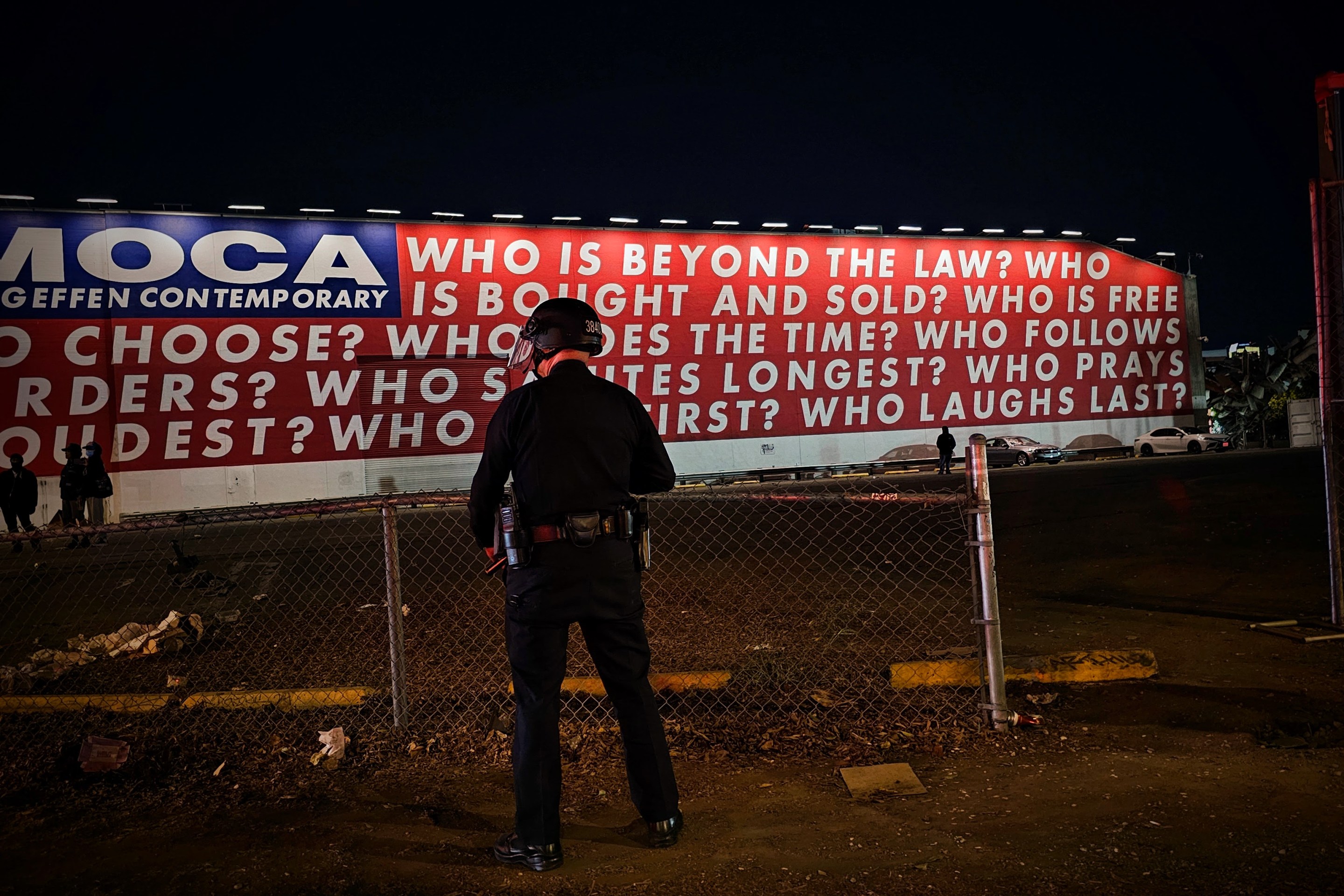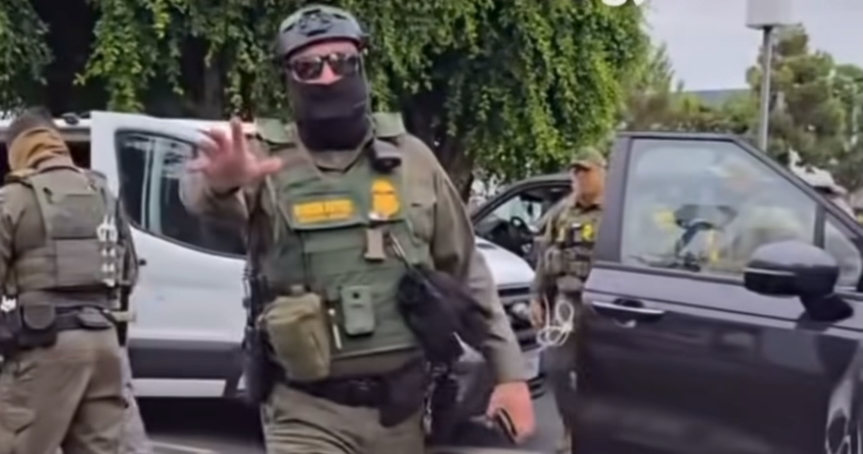“I only have eyes for youuu… “
“Cruisin' is made for love… ”
“I'm your puppet.”
“This is dedicated to the one I love… ”
Music is a magical porthole to unknown worlds and those distant moments when memories are crystalized and forever burned into our synapses.
Art Laboe was its Morpheus, bridging the sentiments of oldies-worshipping L.A. onto one big ephemeral trip into the last century, while rekindling the flames of lovers separated by time, distance, and prison doors through his heartbreaking dedications.
Through 16 years of his radio show, “The Art Laboe Connection,” and over the untold dozens of radio transmissions, albums, and live events he’s hosted since his broadcast debut in the war-time San Francisco of 1943, the nonagenarian deity of a disc jockey wove timeless pop ballads, soul classics, and romantic appeals together.
Bookended by his on-air dedications from listeners professing eternal devotion—whether aimed at a sweetheart in Corcoran, Folsom, or Delano correctional facilities'—he united the southwest for six hours every Sunday in a send-off to the weekend steeped in glorious nostalgia for summer nights long gone and the blown chances and bad decisions that sealed our ultimate fates.
For devotees, it only takes a whisper of Laboe’s name to bring one specific classic or another to mind. Doo-wop-dipped ditties and pained pop love letters that jet us back to a past, evoking make-out points, break-ups between bad boys and sad girls, and slow, low cruises through suburban Valley and urban East L.A. boulevards as oldies harmonize from the speakers of oversized U.S.-issued chariots.
Romantic throwbacks from the last half of the 20 century that conjure memories of Tilt-A-Whirl-backdropped dates and puppy-eyed high school hookups. Pop gems of teenage tomfoolery from a conceivably more innocent age, summoning sensations through the ghost radio that you may be haunting some kind of great, eternal San Fernando sock-hop in the sky just as easily as summiting the Sepulveda pass, K-Day struggling to rip through the static on your car stereo.
Laboe’s biography is comprised of notable triumphs for our region. Born Arthur Egnoian to an Armenian-American family in Salt Lake City in 1925, Laboe’s family later moved to Los Angeles, where he graduated at 16 from Washington Preparatory High School in South L.A.’s Westmont neighborhood. He joined the Navy, studied radio engineering at Stanford, and took to the airwaves at San Francisco’s KSAN in 1943, where he developed the live “request and dedication” format that would influence generations of radio DJs. He briefly broke away from this career to help the U.S. military transmit Morse Code to send messages to ships in the South Pacific.
Laboe came back to Southern California, first working at Palm Springs’ KCMJ and later back in L.A. at KPOP, where he began the live broadcast shows and tours that would continue until his final days. Laboe was last scheduled to host a show on Oct. 8, one day after his passing at 97 from pneumonia in Palm Springs.
Laboe’s shows at Hollywood’s Scrivner’s Drive-in on Cahuenga and Sunset, and later, famously, at El Monte’s Legion Stadium, where he is said to have helped integrate racially, culturally, and geographically segregated audiences of that era, cementing his status as an L.A. legend. Similarly, his signature sound integrated the airwaves, putting the spotlight equally on Black, Mexican-American, White, and Asian-American artists, as well as those locally grown who were in need of exposure.
Among his many achievements, Laboe is credited with trademarking the term “oldies but goodies” which is all but synonymous with the musical genres of 1950s and 60s R&B and pop. He is also frequently credited with being the first radio host to play rock n’ roll on the airwaves. Laboe’s work extends to production and songwriting, overseeing a series of song compilations such as his “Dedicated To You” volumes and his own Hollywood-based record label, Original Sound Records.
In a career that spans many stations and shows, Laboe had two shows at the time of his passing, The Art Laboe Connection, heard locally on 93.5 F.M. on Sunday evenings, and The Art Laboe Love Zone, heard five times a week on 104.7 F.M. Laboe’s show spanned states, being thumped by the streets and outskirts alike in markets such as Las Vegas, Phoenix, the, I.E., and San Diego.
Laboe’s voice, nothing like the silky strains of today’s crooning KCR-Whisperers or the affected howls of your Wolfman Jacks, felt like that of an old friend’s; avuncular to a T. He was the down square in the center of the high school dance, beloved by all, running things while backed by the best record collection for miles and a supernatural talent for pinpointing what to play and when.
The heartfelt dedications on his shows not only honored and humanized the very real couples on the requesting-and-receiving ends but possessed the ability to physically wound the listener with their yearning, most commonly made by loved ones standing faithful vigil on the outside to the ones they longed for, confined far away on the inside. They were the stark side of the coin to the starry-eyed songs of love and loss, bookending these dedications.
Los Angeles has experienced a hemorrhaging of the kinds of L.A. heroes, both born and raised and adopted; one feels hard-pressed to think we’ll see a lot more of them in the years to come. Jonathan Gold, Huell Howser, and Vin Scully come to mind. The kinds of Angelenos we’ve long looked to promote our unique character, and civic pride and defend our honor. Laboe may not be the last one in existence, but his loss cuts deeply for those who loved him.
As sure as death is sitting in the park, waiting, we all get older. That we had the treasure that is Art Laboe until his 97th year feels like nothing short of a blessing. A stroke of fortune that benefitted our lives, our eardrums, our unity, and our reunions and get-togethers.
In tribute to the ones we love, be they songs, friends, families, or the people we can only touch across the airwaves for now, we thank the legend for his life and work.
May you rest in peace, Art Laboe. "Forever ours."







